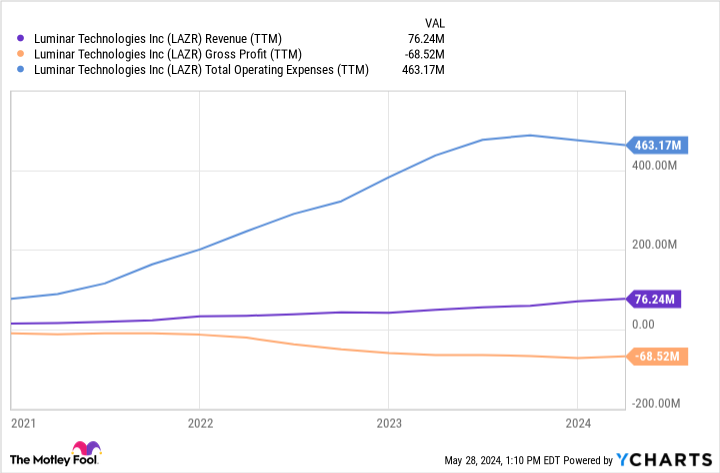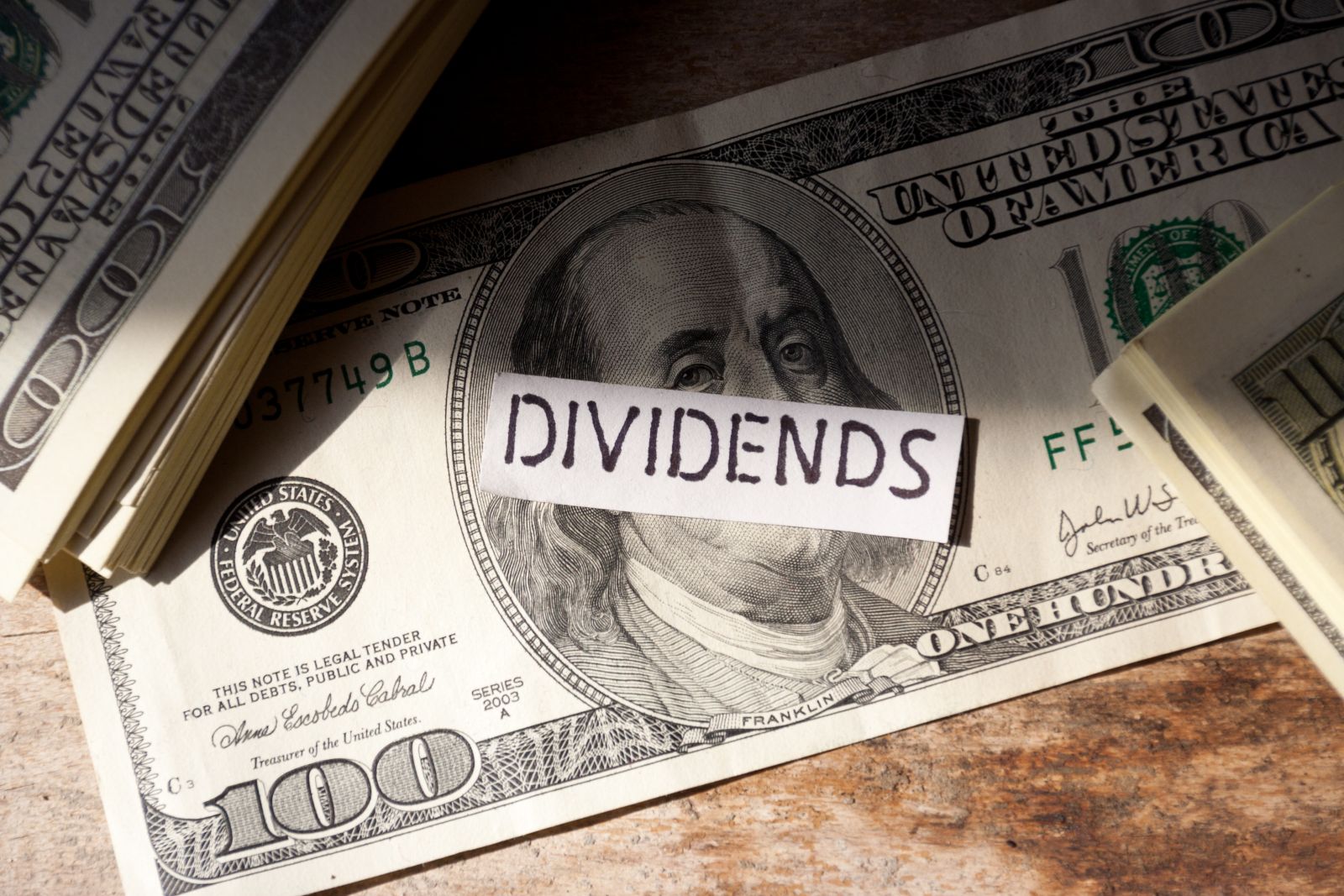Back in April, Tesla CEO Elon Musk made a bold prediction about the future of the car industry. During the company's earnings call, Musk proclaimed that at some point, "all cars will need to be smart cars."One of the major features of a smart car is that the vehicle has the ability to drive itself.
Today, cars come equipped with a number of sensors and cameras that are constantly gathering information about traffic patterns, driving speeds, neighborhood layouts, and more. This information is stored and processed by car companies, which use it to train their autonomous driving software models.
Luminar Technologies (NASDAQ:LAZR) develops sensors that use lidar -- pulsed laser light -- to "see" and create 3D maps of what's around them. Lidar is increasingly being adopted as a key component of autonomous driving systems.
Despite the company's role in developing an emerging and important technology, shares of Luminar have cratered by roughly 75% over the last year. Has that created a smart opportunity to buy the dip?
A look underneath Luminar's hood
You might recall that a few years ago, a significant number of businesses went public via mergers with special purpose acquisition companies (SPACs). SPACs briefly captured the attention of retail investors in particular because many of the companies that were taking that path to the market were high-profile start-ups that looked to have potentially lucrative prospects.
In reality, many of those SPACs bought businesses that had not yet scaled and were still burning cash heavily. Yet the marketing surrounding SPAC stocks gave the impression that these were once-in-a-lifetime opportunities. As a result, a lot of unsophisticated investors poured into SPACs at puffed-up valuations.
The table below breaks down the long-term returns of SPAC stocks across a number of industries adjacent to that of Luminar.
| Industry | SPAC Stocks' Median Return (2009-Present) |
|---|---|
| Electric vehicles | (94.7%) |
| Technology | (87.8%) |
| Transportation | (72.2%) |
Data source: SPAC Insider
Since Luminar went public, its return has been negative 83%, squarely within the pattern shown in the table above. Although Luminar's technology is exciting, the company has little to show for its hefty investments in research and development so far.

Image Source: Getty Images.
The long-term outlook is cloudy
Over the last 12 months, Luminar's operating expenses have topped $460 million, yet it has generated only $76 million in sales. That doesn't bode well for the prospects of it generating long-term sustained profits.
LAZR Revenue (TTM) data by YCharts.
On top of this, some of the notes in Luminar's Securities and Exchange Commission filings should give investors trepidation about the company's progress. Specifically, 69% of Luminar's Q1 revenue came from just three of its customers. That creates an extreme degree of customer-concentration risk.
To add even more doubt to the picture, Luminar's biggest customer is Tesla -- which accounted for 48% of revenue in the first quarter. While this might look like a serious nod of approval on the surface, there are a few glaring reasons for concern.
First, Musk has gone on the record as not being a supporter of lidar. Second, when Luminar's management was questioned by analysts about its relationship with Tesla during the first-quarter earnings call, their answers left much to be desired.
"I don't think we're in the best position to talk about, what they're [Tesla] doing with our lidar," CEO Austin Russell said. "This isn't the first time that they've ordered lidar from us, but I would say it's been more lumpy than recurring." He followed this up by saying "we can only speculate" about what Tesla is doing with those lidar sensors.
It's not a good thing when a company's largest customer is inconsistent about its purchases. It's equally unnerving that Luminar does not know why Tesla is buying its products and how they are being used.
Is Luminar stock a good buy right now?
Like many SPAC stocks, I think Luminar benefited from some positive sentiment surrounding the potential of its technology as opposed to the fundamentals of the business.
I wouldn't go as far as to say that lidar sensors are commoditized, but Luminar is far from the only company developing such products. Considering that it's booking only nominal sales, has a hefty cash burn, operates in a fiercely competitive market, and has a high degree of customer concentration, I can see little reason to buy this stock.
Should you invest $1,000 in Luminar Technologies right now?
Before you buy stock in Luminar Technologies, consider this:
The Motley Fool Stock Advisor analyst team just identified what they believe are the 10 best stocks for investors to buy now… and Luminar Technologies wasn’t one of them. The 10 stocks that made the cut could produce monster returns in the coming years.
Consider when Nvidia made this list on April 15, 2005... if you invested $1,000 at the time of our recommendation, you’d have $671,728!*
Stock Advisor provides investors with an easy-to-follow blueprint for success, including guidance on building a portfolio, regular updates from analysts, and two new stock picks each month. The Stock Advisor service has more than quadrupled the return of S&P 500 since 2002*.
*Stock Advisor returns as of May 28, 2024
Adam Spatacco has positions in Tesla. The Motley Fool has positions in and recommends Tesla. The Motley Fool has a disclosure policy.





/Super%20Micro%20Computer%20Inc%20HQ%20photo-by%20Tada%20Images%20via%20Shutterstock.jpg)

/AI%20(artificial%20intelligence)/Close-%20up%20of%20computer%20chip%20with%20AI%20sign%20by%20YAKOBCHUK%20V%20via%20Shutterstock.jpg)
